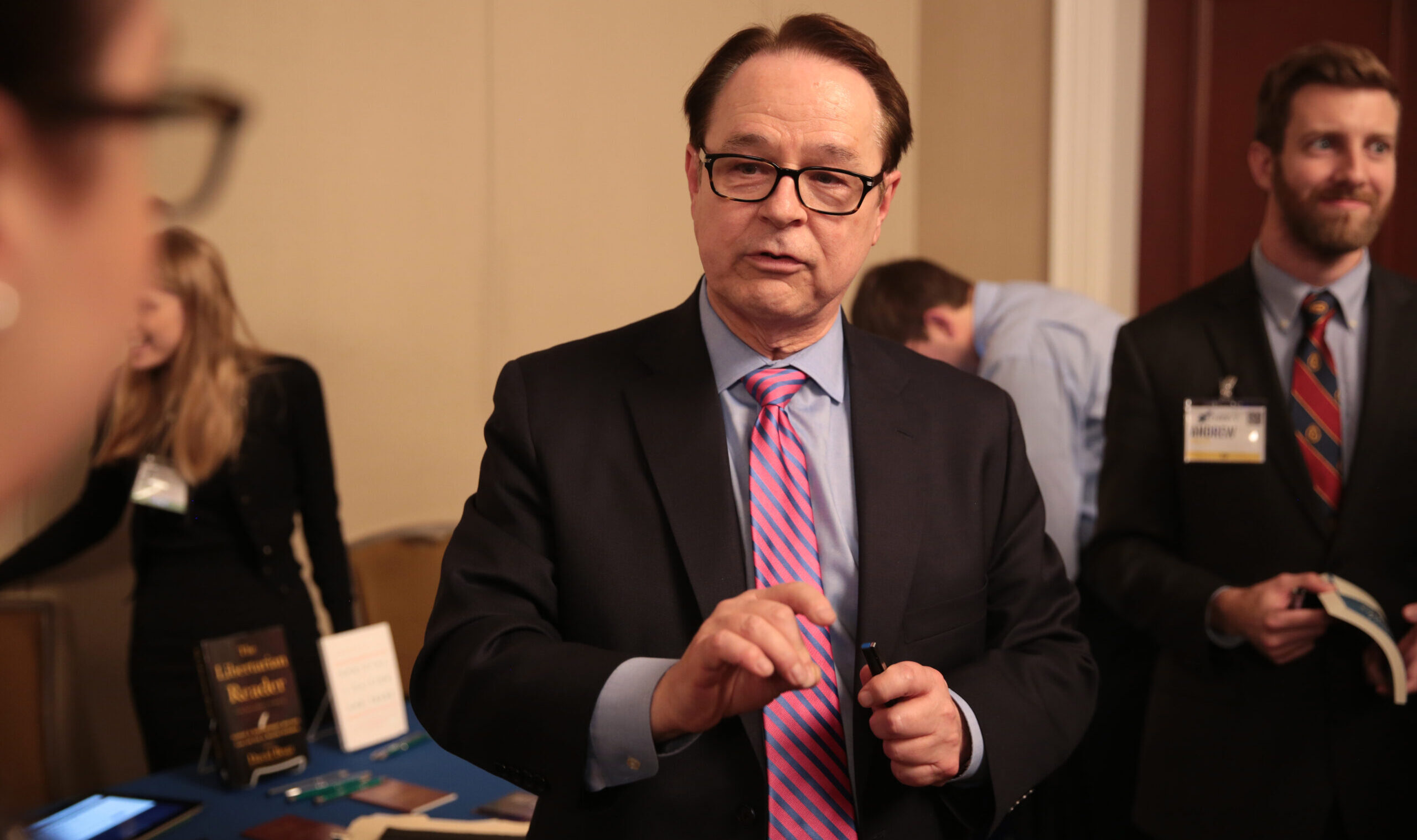David Boaz was a well-known face of the Cato Institute and a major voice for libertarian ideas in Washington, D.C., for over 40 years. He argued for free markets and personal freedoms in many media platforms.
Boaz was a non-fusionist libertarian. This means he didn’t try to fit within conservative ideas or balance freedom with traditional values. He focused solely on liberty.
Even though he might seem somewhat conservative compared to others in the libertarian movement, he wouldn’t call himself that.
In the Libertarian Party, he was more of a pragmatist, often supporting ex-Republicans for office, but he was not aligned with the Mises Caucus.
Boaz often worked with conservatives on shared goals and pushed his small-government message to center-right audiences. These audiences were usually more open to his ideas when Democrats were in power, less so when Republicans were.
Sixteen years ago, I reviewed Boaz’s book, “The Politics of Freedom,” alongside Grover Norquist’s book for The American Conservative.
At that time, George W. Bush’s second term was ending, and things were tough for the Republican Party and the country. The economy was in recession, and the Iraq War was still problematic. Bush’s approval rating was very low.
It was clear that the Republican Party’s strategies were not working. Bush tried some of Boaz’s ideas, like tax cuts, but other policies like No Child Left Behind and Medicare Part D didn’t turn out well. Bush also failed to privatize Social Security.
Boaz pointed out that many small-l libertarians were unhappy with Bush’s policies of war, wiretapping, and welfare spending. Boaz and David Kirby found that Bush lost support from these voters between 2000 and 2004, although Bush did get more overall votes in 2004.
Libertarians were the first to push the Republican Party away from Bush’s policies, even though Ron Paul’s libertarianism wasn’t exactly Boaz’s style.
The Tea Party movement seemed like it might push in a more libertarian direction, focusing on fiscal issues and constitutional government.
However, this didn’t last, as the GOP couldn’t rely only on tax cuts.
Boaz often debated these issues with other libertarians as well as conservatives. He was a liberal in the classical sense, valuing personal freedom.
Although the Right is moving in a more populist and communitarian direction, Boaz’s influence remains strong.
Many people in politics and policy got their start with help from Boaz, including some conservatives. His legacy is significant, especially from a time when anti-war voices were rare in conservative circles.
This is a notable legacy to leave behind.

